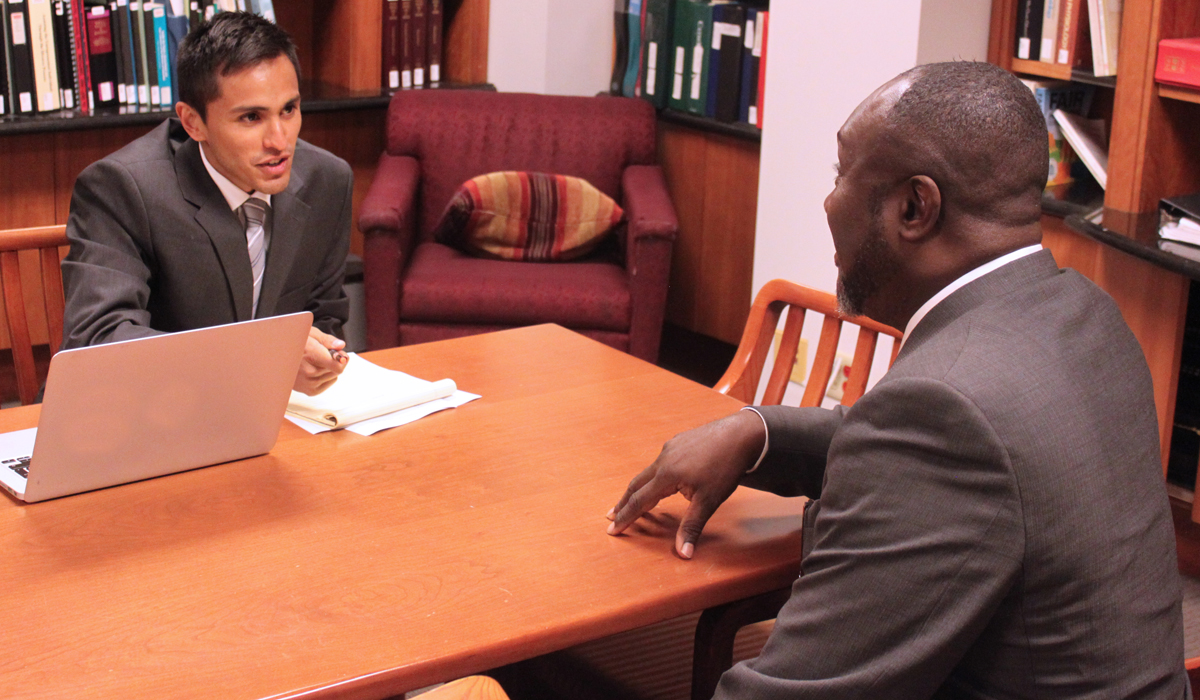Clinics and Externships
The Clinical Philosophy
The clinical approach at Catholic Law emphasizes learning by doing and reflecting. Students assume primary responsibility for their clients’ cases and work under the supervision of expert faculty in our in-house and external clinical programs.
Catholic Law students can gain real-world experience through participation in the following programs:
- Columbus Community Legal Services (CCLS)
Founded 50 years ago, Columbus Cummunity Legal Services (CCLS), our in-house clinical program is widely respected as a pioneer in clinical legal education. CCLS has helped thousands of disadvantaged residents of Washington, DC., navigate America's complicated legal system to obtain justice, protection, and relief.
CCLS encompasses two separate clinical programs. In the Families and the Law Clinic, students represent clients before local courts and federal immigration relief, including VAWA self-petitions, battered spouse waivers, and U visa applications.
Students in the Immigrant and Refugee Advocacy Clinic (IRAC) advocate for immigrants and refugees in our courts, administrative proceedings, and policy forums. Students assist low-income clients living in D.C., Virginia, and Maryland who have experienced political persecution, violence, or humanitarian crisis in their home countries. IRAC will represent clients with matters such as asylum, special immigrant visas for unaccompanied minors, labor trafficking, and naturalization. In addition, students may assist clients on issues that impact or relate to the clients immigration status such as child support, public benefits, or employment concerns. IRAC clients will include adults as well as unacompanied minors. - Additional Clinical Opportunities
Nonprofit Advocacy Clinic
Criminal Defense Clinic
Criminal Prosecution Clinic
D.C. Modern Prosecution Program
Trusts and Estates
- Legal Externships
The Law School also offers a robust Externship program, which enables students to gain hands-on experience while observing the work of lawyers in a wide range of practice areas and practice types.
Our students receive academic credit for fieldwork completed on Capitol Hill at federal, state , and local courts and agencies; legal services organizations; national and local nonprofit policy organizations; trade associations and labor unions; corporate counsel's offices; and private law firms.
Catholic Law offers excellent simulation courses in subjects including appellate advocacy; intellectual property practice; interviewing, counseling, and negotiation skills; mediation and arbitration; trial advocacy; criminal practice; and labor and employment practice. - Pro Bono
The Catholic Law Pro Bono Program fosters the importance of hands on learning opportunities to assist those in need of access to justice. Pro Bono projects enable yo to apply the lessons you have learned in the classroom to real-life cases, while advancing your professional development.
Participation in the program is voluntary, and there is a range of diverse opportunities to take part in.
As a first year student, you are encouraged to take part in pro bono opportunities as soon as you feel ready. The Catholic Law Pro Bono Coordinator will help you find a project that interest you and fits in with your busy academic calendar.

